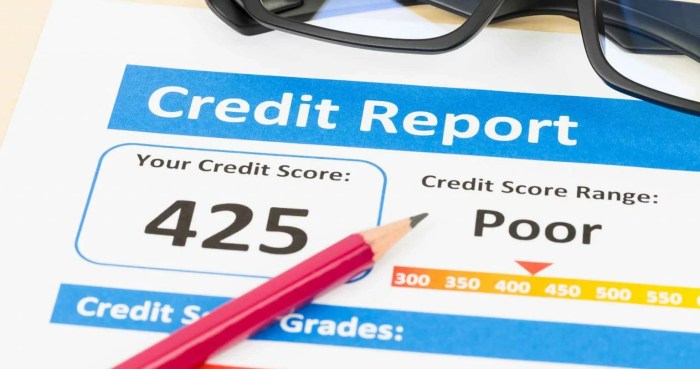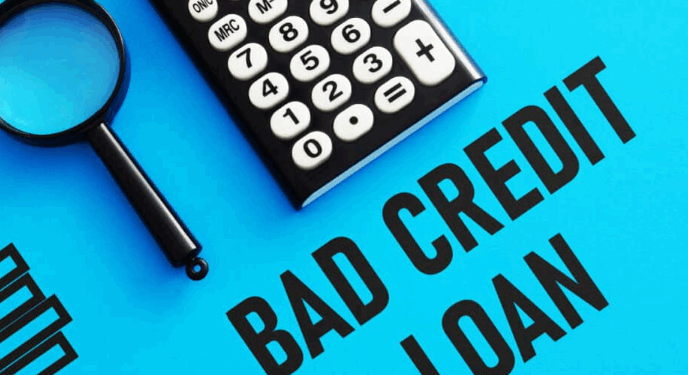With Guaranteed Loans For Bad Credit leading the charge, individuals facing financial hurdles can find a lifeline that empowers them to regain control over their fiscal health. These loans are designed to provide accessible funding options for those who may have been previously overlooked by traditional lending institutions. By understanding the characteristics, types, and processes involved in guaranteed loans, individuals can make informed decisions that pave the way for a brighter financial future.
The significance of guaranteed loans lies in their capacity to bridge the gap for those with less-than-perfect credit scores, ensuring that essential funding remains within reach. From personal loans to payday options, the variety of guaranteed loans available can cater to diverse needs. By exploring the eligibility criteria and understanding the application process, borrowers can navigate these offerings with confidence and clarity.
Understanding Guaranteed Loans for Bad Credit
Guaranteed loans for bad credit are financial products designed to provide individuals with challenging credit histories the opportunity to secure funding. These loans are significant for those who may have been denied traditional financing options, as they can offer a lifeline in times of need, whether for emergencies, debt consolidation, or significant purchases. By providing accessibility, guaranteed loans help improve financial stability and may pave the way for better credit in the future.Guaranteed loans differ from traditional loans in several key ways.
Firstly, they are specifically tailored for borrowers with poor credit, often requiring less stringent credit checks. While traditional loans typically assess creditworthiness based on credit score, guaranteed loans may place more emphasis on income and repayment ability. Additionally, guaranteed loans often come with higher interest rates compared to conventional financing, reflecting the increased risk lenders take on when providing loans to individuals with bad credit.
Main Characteristics of Guaranteed Loans
Understanding the characteristics that distinguish guaranteed loans is crucial for potential borrowers. These features include the following:
- Accessibility: Guaranteed loans are accessible to individuals with bad credit, offering a financial solution when traditional lenders may not be willing to extend credit.
- Flexible Terms: Lenders may offer a range of repayment options, allowing borrowers to choose the terms that best fit their financial situation.
- Higher Interest Rates: Due to the increased risk associated with lending to those with bad credit, interest rates on guaranteed loans are typically higher.
- Quick Approval Processes: Many lenders provide fast approval for guaranteed loans, enabling borrowers to receive funds promptly in urgent situations.
- Potential for Secured Options: Some guaranteed loans may require collateral, which can provide lower interest rates but also poses a risk of asset loss.
The eligibility criteria for obtaining guaranteed loans generally include several important factors. Lenders often consider the following aspects when assessing applicants:
- Minimum Income Requirements: Borrowers may need to demonstrate a stable income that meets the lender’s threshold, ensuring they can manage the loan repayments.
- Residency Status: Many lenders require that applicants are permanent residents or citizens of the country where the loan is being sought.
- Age Requirements: Applicants typically need to be at least 18 years old, although legal age may vary by location.
- Bank Account: A valid bank account might be necessary for disbursing funds and setting up automatic repayments.
- Debt-to-Income Ratio: Lenders often evaluate the applicant’s debt-to-income ratio to better understand their financial situation and repayment capacity.
The successful acquisition of a guaranteed loan can enhance financial opportunities, serving as a stepping stone towards improved credit standing.
Types of Guaranteed Loans Available

Source: cloudfront.net
Guaranteed loans for individuals with bad credit are designed to provide financial support when traditional lending options are unavailable. These loans cater to various needs and purposes, offering unique features and terms depending on the type of loan selected. Understanding the different types of guaranteed loans is essential for borrowers seeking to make informed financial decisions.There are several types of guaranteed loans available, each serving specific financial needs.
These include personal loans, auto loans, and payday loans. Each type of loan has its advantages, as well as requirements that borrowers should consider before applying. Below is a detailed overview of each loan type along with examples of lenders that offer these options.
Personal Loans
Personal loans are unsecured loans that can be used for a variety of purposes, including debt consolidation, medical expenses, or home improvements. These loans typically have fixed interest rates and flexible repayment terms, which make them appealing to many borrowers. Examples of lenders that offer guaranteed personal loans for bad credit include:
- Avant
- OneMain Financial
- BadCreditLoans.com
Auto Loans
Auto loans are specifically tailored for financing the purchase of a vehicle. These loans may be secured by the vehicle itself, which can lead to lower interest rates compared to unsecured loans. Borrowers can choose between new and used car loans, depending on their needs and preferences.Some lenders known for their guaranteed auto loans for bad credit include:
- Carvana
- DriveTime
- RoadLoans
Payday Loans
Payday loans are short-term loans designed to provide immediate cash for unexpected expenses, usually to be repaid by the borrower’s next payday. While this type of loan can be helpful in emergencies, it often comes with high-interest rates and fees, which borrowers should carefully consider.Noteworthy lenders offering guaranteed payday loans for bad credit include:
- Check `n Go
- Advance America
- MoneyMutual
Comparison of Guaranteed Loan Types
Understanding the differences among the various types of guaranteed loans can help borrowers choose the best option for their needs. The following table Artikels the main features of personal loans, auto loans, and payday loans.
| Loan Type | Purpose | Secured/Unsecured | Typical Loan Amount | Repayment Terms |
|---|---|---|---|---|
| Personal Loans | General expenses | Unsecured | $1,000 – $50,000 | 2 – 7 years |
| Auto Loans | Vehicle purchase | Secured | $5,000 – $100,000 | 3 – 7 years |
| Payday Loans | Short-term cash needs | Unsecured | $100 – $1,000 | 2 – 4 weeks |
Choosing the right type of guaranteed loan is crucial to ensure it aligns with your financial situation and repayment capacity.
The Application Process
Applying for guaranteed loans with bad credit may seem daunting, but understanding the process can significantly ease your journey. This segment will guide you through the essential steps involved in applying for these loans, ensuring you are well-prepared to present your case to lenders effectively.The application process for guaranteed loans typically involves several key stages, from initial research to the submission of required documentation.
A clear understanding of these steps is vital for a smooth experience. Being proactive in preparing necessary documents and following through with the application can greatly enhance your chances of approval.
Step-by-Step Application Process
The application process involves multiple steps that need to be followed systematically. Here’s a rundown of these essential steps:
- Research Lenders: Identify lenders who specialize in guaranteed loans for individuals with bad credit. Compare interest rates, terms, and customer reviews to find a suitable match.
- Check Your Credit Report: Obtain a copy of your credit report. Understanding your credit score will help you address potential issues or inaccuracies that might hinder your application.
- Gather Required Documentation: Compile all necessary documents that lenders may require to process your application.
- Submit the Application: Fill out the application form accurately, ensuring all information is truthful and up-to-date. Submit it along with your documentation.
- Await Approval: After submission, lenders will review your application. This process may take a few days to a few weeks.
- Review Loan Terms: If approved, carefully review the loan terms and conditions before signing the agreement. Make sure to understand the repayment schedule, interest rates, and any associated fees.
- Receive Funds: Upon acceptance of the agreement, funds will be disbursed to you, usually within a few days.
Documentation Required for the Application
Preparing the necessary documents is a critical part of the application process. Proper documentation not only supports your application but also enhances its credibility. The following is a list of documentation typically required:
“Properly collected documentation reflects your preparedness and increases the likelihood of loan approval.”
The list of essential documents includes:
- Proof of Identity: A government-issued photo ID, such as a driver’s license or passport.
- Proof of Income: Recent pay stubs, bank statements, or tax returns that demonstrate your financial stability.
- Employment Verification: A letter from your employer verifying your position and salary may be beneficial.
- Credit Report: A recent copy of your credit report to provide lenders with insights into your credit history.
- Bank Statements: Recent statements that indicate your financial transactions and available balances.
- Loan Purpose: A brief statement explaining how you intend to use the loan funds.
Application Process Checklist
To streamline the application process and ensure that no steps are overlooked, an application checklist can be incredibly useful. This will guide you through each necessary stage effectively.
“A thorough checklist can prevent missing critical steps during the application process.”
Here’s a comprehensive checklist to assist you:
- Research and select potential lenders.
- Check your credit report for accuracy.
- Compile all required documentation:
- • Identity verification
- • Income proof
- • Employment verification
- • Recent credit report
- • Bank statements
- • Statement of loan purpose
- Complete the loan application accurately.
- Submit the application along with documentation.
- Monitor the application status and respond to any requests for additional information promptly.
- Review terms and conditions if approved; clarify any uncertainties.
- Accept the loan and await fund disbursement.
Interest Rates and Fees
The interest rates and fees associated with guaranteed loans for bad credit can significantly influence the overall cost of borrowing. Understanding these financial aspects is essential for borrowers as they navigate their options. This section delves into the variability of interest rates based on credit scores and other determinants, Artikels the common fees linked with these loans, and compares the costs among various lenders.Interest rates for guaranteed loans can fluctuate widely due to a variety of factors, including the borrower’s credit score, income level, loan amount, and repayment term.
Generally, borrowers with lower credit scores may encounter higher interest rates as lenders perceive them as higher risk. Conversely, individuals with better credit profiles might secure more favorable rates, reflecting their creditworthiness.
Common Fees Associated with Guaranteed Loans
Borrowers should be aware that guaranteed loans often come with a range of fees that can add to the total cost of the loan. Understanding these fees is crucial for accurate financial planning. The following are common fees associated with guaranteed loans:
- Origination Fees: Charged by the lender for processing the loan, typically a percentage of the loan amount.
- Late Payment Fees: Applicable if a borrower fails to make payments on time, potentially increasing overall loan costs.
- Prepayment Penalties: Some lenders impose these fees if a borrower pays off the loan early, which can deter borrowers from refinancing.
- Application Fees: Charged at the time of applying for the loan, regardless of whether the loan is approved.
These fees can accumulate and significantly impact the total repayment amount. For instance, if a borrower takes out a $10,000 loan with a 5% origination fee, they would owe an additional $500 upfront, raising the initial loan cost.
Comparison of Interest Rates and Fees Among Lenders
When searching for guaranteed loans for bad credit, it is vital to compare interest rates and fees across various lenders. This comparison can lead to better savings and more manageable loan terms. Many lenders may offer similar products, yet the specifics of their interest rates and fees can differ greatly.
- For example, one lender might offer a fixed interest rate of 15% with an origination fee of 3%, while another could provide a rate of 17% but no origination fee.
- Additionally, some lenders may offer flexible repayment options that could mitigate the total cost through reduced late payment fees or favorable terms for early repayment.
A detailed comparison will help potential borrowers recognize the overall cost implications of their loan choices and make informed decisions. Being diligent in evaluating offers can ultimately lead to significant savings in the long run.
Risks and Considerations
Guaranteed loans for individuals with bad credit can seem like a lifeline in challenging financial situations. However, these loans come with potential risks and considerations that must be evaluated carefully. Understanding these risks is crucial to making informed decisions about financial health and future borrowing.The pursuit of guaranteed loans often leads to higher interest rates due to the perceived risk associated with borrowers who have poor credit histories.
This can result in a cycle of debt that is difficult to break. Moreover, the terms of these loans may include hidden fees or unfavorable conditions that can further exacerbate financial difficulties. It is essential to weigh the benefits against the potential long-term implications on one’s financial situation.
Potential Risks of Guaranteed Loans
The following points Artikel the significant risks involved in obtaining guaranteed loans for bad credit:
- High-Interest Rates: Borrowers may face exorbitant interest rates that could lead to significant financial strain over time.
- Short Loan Terms: Many guaranteed loans come with shorter repayment periods, increasing the monthly payment burden.
- Hidden Fees: Some lenders may charge processing fees and other hidden charges that inflate the overall cost of the loan.
- Risk of Default: High payments combined with low income may lead to default, which can further damage credit scores and incur additional penalties.
- Cycle of Debt: Borrowers may find themselves in a continuous loop of borrowing to pay off previous loans, leading to further financial instability.
Impact of High-Interest Loans on Long-Term Financial Health
High-interest loans can have detrimental effects on an individual’s long-term financial health. The compounding nature of interest means that over time, borrowers may end up paying significantly more than the original loan amount.
For example, a loan of $1,000 at an interest rate of 30% can cost a borrower nearly $1,300 over just one year, not including additional fees.
As the debt accumulates, it can hinder the ability to save for emergencies or invest in future opportunities, perpetuating a cycle of financial dependency.
Alternative Financing Options
Before committing to a guaranteed loan, it is prudent to explore alternative financing options that may be more suitable for individuals with bad credit. These alternatives can often provide better terms and lower overall costs.
- Credit Unions: Many credit unions offer more favorable loan terms to their members, including lower interest rates and more flexible repayment options.
- Peer-to-Peer Lending: Online platforms that connect borrowers directly with individual investors may provide better rates compared to traditional lenders.
- Secured Loans: Offering collateral can lead to lower interest rates, making repayment more manageable.
- Debt Consolidation Loans: These loans can help consolidate multiple debts into one, often at a lower interest rate, simplifying repayment.
- Financial Assistance Programs: Non-profit organizations may offer financial assistance or counseling services to help individuals manage their debt more effectively.
Tips for Managing Guaranteed Loans

Source: badcredit.org
Managing guaranteed loans requires careful planning and strategic financial management. Ensuring timely repayment not only helps in maintaining financial health but also plays a crucial role in improving credit scores for future borrowing opportunities. Below are essential strategies to effectively manage guaranteed loans while underscoring the importance of budgeting and financial planning.Budgeting and financial planning are fundamental components when taking out guaranteed loans.
A well-structured budget allows borrowers to allocate funds appropriately for loan repayments alongside other financial responsibilities. By establishing a clear financial plan, borrowers can avoid missing payments and incurring additional fees or penalties.
Strategies for Successfully Managing and Repaying Guaranteed Loans
Implementing effective strategies can significantly ease the burden of managing guaranteed loans. Here are some key approaches:
1. Create a Detailed Budget
Develop a budget that Artikels monthly income and expenses, ensuring that loan repayments are prioritized.
2. Set Up Automatic Payments
Automating payments can prevent missed deadlines and associated penalties, ensuring timely repayment.
3. Communicate with Lenders
If facing financial difficulties, inform lenders as they may provide options for deferment or restructuring the loan.
4. Track Your Progress
Regularly review your budget and repayment progress to stay on target and make adjustments as necessary.
5. Consider Additional Income Sources
Explore side jobs or freelance work to generate extra income, which can be allocated towards loan repayment.
Tips for Improving Credit Scores
Improving your credit score is vital for qualifying for better loan terms in the future. Here is a table summarizing effective tips to enhance your credit score:
| Tip | Description |
|---|---|
| Pay Bills on Time | Consistently paying all bills, including utilities and credit cards, on time can improve your credit score. |
| Reduce Credit Utilization | Aim to keep your credit utilization ratio below 30% to positively impact your credit score. |
| Check Your Credit Report | Regularly review your credit report for inaccuracies and dispute any errors you may find. |
| Avoid Opening Too Many Accounts | Limit new credit inquiries by avoiding the opening of multiple accounts in a short time frame. |
| Maintain Old Accounts | Keep old credit accounts open, as the length of credit history can positively influence your score. |
Resources and Support
Accessing guaranteed loans for bad credit can be daunting, but numerous organizations and resources are available to assist individuals navigating this process. Understanding where to seek help can significantly enhance your financial literacy and improve your chances of securing a loan suitable for your circumstances.Various organizations and websites offer critical assistance for individuals seeking guaranteed loans for bad credit. These resources can provide guidance, counseling, and useful information to help borrowers make informed decisions.
Organizations and Websites for Assistance
Several reputable organizations provide information and support for those looking for guaranteed loans. Here is a list of notable resources:
- National Foundation for Credit Counseling (NFCC)
-A nonprofit organization offering free or low-cost credit counseling services across the United States. - Credit Karma
-An online platform that provides free credit scores, reports, and personalized financial recommendations. - Consumer Financial Protection Bureau (CFPB)
-A government agency that offers valuable resources and educational materials related to loans and credit management. - Local Community Action Agencies
-These agencies often provide financial assistance programs and can connect individuals with resources tailored to their needs. - Credit.org
-A nonprofit organization offering financial education, credit counseling, and budgeting assistance to help consumers better manage their finances.
Finding credible financial advisors or credit counselors is essential for receiving reliable guidance. Look for professionals who hold certifications from recognized organizations, such as the NFCC or the Association for Financial Counseling & Planning Education (AFCPE). It is advisable to verify their credentials and read reviews or testimonials from former clients to ensure their credibility.
Online Resources for Managing Bad Credit
For further information on managing bad credit, various online resources are invaluable. These platforms provide articles, tools, and support to empower individuals in overcoming credit challenges.
- AnnualCreditReport.com
-Obtain free credit reports to understand your credit history and identify areas for improvement. - The Balance
-A comprehensive financial website offering articles that cover a wide range of topics related to credit and loans. - MyFICO
-Provides insights into credit scoring and offers tools to help consumers improve their credit scores. - Experian
-This credit reporting agency offers educational resources regarding credit management and loan options. - Financial Literacy and Education Commission
-A government initiative providing information on financial education resources available to consumers.
“Knowledge is power. Understanding your financial situation and available resources is the first step towards financial empowerment.”
Final Review

Source: com.au
In summary, Guaranteed Loans For Bad Credit present an invaluable opportunity for individuals seeking to improve their financial standing despite previous credit challenges. While these loans can provide immediate relief, it is crucial to remain aware of the associated risks and to approach repayment with a solid plan. By employing sound financial management strategies and utilizing available resources, borrowers can effectively turn their financial situations around and enhance their creditworthiness over time.
Expert Answers
What are guaranteed loans for bad credit?
Guaranteed loans for bad credit are loan options specifically designed for individuals with poor credit histories to help them access funds.
How can I improve my chances of getting a guaranteed loan?
Improving your credit score, providing proof of income, and reducing existing debts can enhance your chances of approval.
Are there specific lenders known for offering guaranteed loans?
Yes, several lenders specialize in guaranteed loans for bad credit, including credit unions and online lending platforms.
What should I do if I cannot make a repayment?
If you’re unable to make a repayment, contact your lender immediately to discuss potential options or restructuring your payment plan.
Can guaranteed loans help improve my credit score?
Yes, if managed responsibly, guaranteed loans can help improve your credit score by demonstrating timely repayments.















